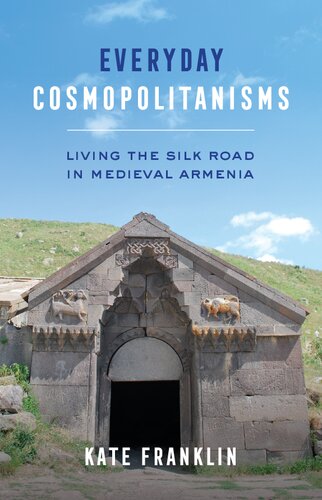

Most ebook files are in PDF format, so you can easily read them using various software such as Foxit Reader or directly on the Google Chrome browser.
Some ebook files are released by publishers in other formats such as .awz, .mobi, .epub, .fb2, etc. You may need to install specific software to read these formats on mobile/PC, such as Calibre.
Please read the tutorial at this link: https://ebookbell.com/faq
We offer FREE conversion to the popular formats you request; however, this may take some time. Therefore, right after payment, please email us, and we will try to provide the service as quickly as possible.
For some exceptional file formats or broken links (if any), please refrain from opening any disputes. Instead, email us first, and we will try to assist within a maximum of 6 hours.
EbookBell Team

5.0
90 reviewsA free open access ebook is available upon publication. Learn more at www.luminosoa.org.
Widely studied and hotly debated, the Silk Road is often viewed as a precursor to contemporary globalization, the merchants who traversed it as early agents of cultural exchange. Missing are the lives of the ordinary people who inhabited the route and contributed as much to its development as their itinerant counterparts. In this book, Kate Franklin takes the highlands of medieval Armenia as a compelling case study for examining how early globalization and everyday life intertwined along the Silk Road. She argues that Armenia—and the Silk Road itself—consisted of the overlapping worlds created by a diverse assortment of people: not only long-distance travelers but also the local rulers and subjects who lived in Armenia’s mountain valleys and along its highways. Franklin guides the reader through increasingly intimate scales of global exchange to highlight the cosmopolitan dimensions of daily life, as she vividly reconstructs how people living in and passing through the medieval Caucasus understood the world and their place within it. With its innovative focus on the far-reaching implications of local practices, Everyday Cosmopolitanisms brings the study of medieval Eurasia into relation with contemporary investigations of cosmopolitanism and globalization, challenging persistent divisions between modern and medieval, global and quotidian.